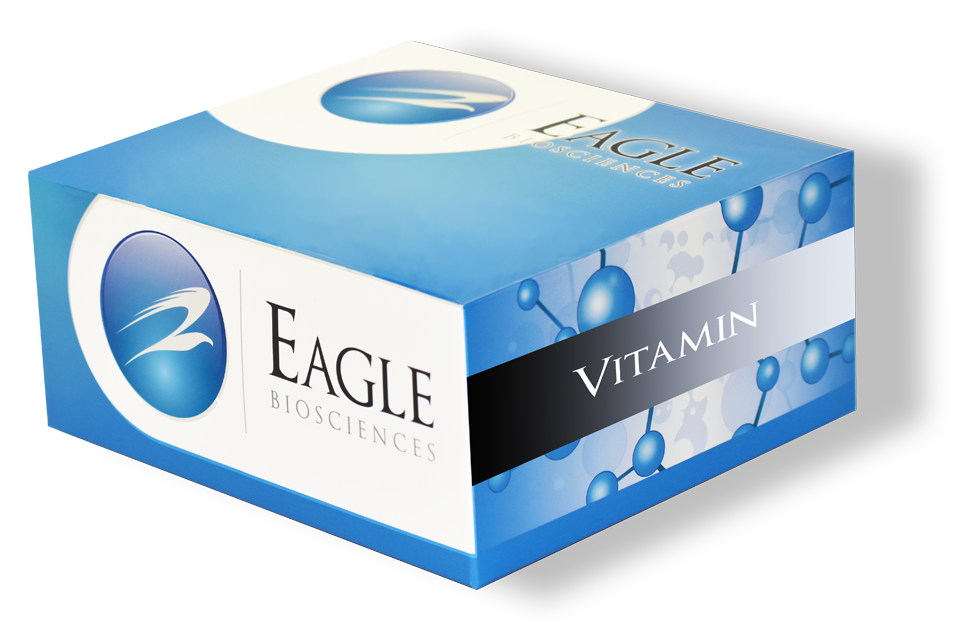Pantothenic Acid Microtiter Plate Assay Kit
Pantothenic Acid Microtiter Plate Assay Kit manufactured in Germany by Immundiagnostik
Size: 1×96 wells
Sensitivity: 2.3 µg/L
Dynamic Range: 2.3 – 36.8 µg/L
Incubation Time: 48 hours
Sample Type: Serum
Sample Size: 100 µL
Alternative Names: Vitamin B5
For Research Use Only
Controls Included
Assay Principle
Serum samples are diluted and added into the microtiter plate wells coated with Lactobacillus plantarum which metabolizes pantothenic acid. The presence of pantothenic acid both in standards [STD] and samples gives a pantothenic acid-dependent growth response. After incubation at 37°C for 24 hours, the growth of Lactobacillus plantarum is measured turbidimetrically at 610 – 630 nm (alternative at 540 – 550 nm) in an ELISA-reader. A dose-response curve of absorbance unit (optical density, OD at 610 nm) vs. concentration is generated using the values obtained from the standard. Pantothenic acid present in the patient samples is determined directly from this curve.
Related Products
Niacin Microtiter Plate Assay
Folic Acid Microtiter Plate Kit
Biotin Microtiter Plate Assay Kit


